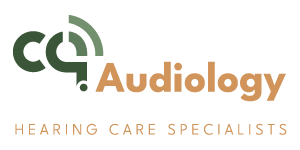Contact Us
We would love to speak with you.
Feel free to reach out using the below details.
Visit our main clinic
- T33 & 34A, City Centre Plaza, 24 Fitzroy Street, Rockhampton, QLD 4700
Get In Touch
- Phone: (07) 4848 6528
- Email: reception@cqaudiology.com.au
Trading Hours
- Mon-Fri 9:00AM - 5:00PM
- Sat 9:00AM - 12:00PM
Get a callback
Fill out the form below and we will contact you as soon as possible!
CQ Audiology Visiting Sites
BARCALDINE
Barcaldine 60 & Better Program
13 Willow Street
QLD 4725
BILOELA
Ace Medical Centre
48 Grevillea Street
QLD 4715
BLACKALL
Blackall Hospital
189 Landsborough Highway
QLD 4472
BLACKWATER
North Blackwater General Practice
14 Blain Street
QLD 4717
EMERALD
Lot 1 Pilot Farm Road
QLD 4720
MOUNT MORGAN
41 Morgan Strreet
QLD 4714
ROCKHAMPON CITY
T 33 & 34A City Centre Plaza
24 Fitzroy Street
QLD 4700
TAMBO
Tambo Multi Purpose Centre
26 Arthur Street, Tambo Queensland 4478
LONGREACH
North & West Queensland Primary Health Sercvies
19 Duck Street, Longreach Queensland 4730
YEPPOON
Keppel Bay Medical Centre
Shopt 26, Keppel Bay Plaza
64-67 James Street
QLD 4703

Experience Unmatched Clarity with Hearing Test Bouldercombe Rockhampton
Why Do I Need a Hearing Test?
Are you looking for a hearing test in Have you ever found yourself asking others to repeat themselves or turning up the TV volume higher than usual? These could be signs that you’re experiencing changes in your hearing, which shouldn’t be ignored. A hearing test is a simple yet crucial step that helps you understand your auditory health better. It’s not just about detecting hearing loss; it’s about gaining insights that could significantly enhance your daily interactions and overall quality of life. Consider what might happen if you continue overlooking these subtle yet persistent signs. Will you take action in time to reverse potential damage?
Importance of Regular Hearing Tests
Regular hearing tests are essential, as they enable early detection and management of hearing loss, significantly enhancing your overall well-being. If you’re over 60, it’s recommended you have annual checkups to monitor changes in your hearing. This regular assessment helps catch any deterioration early, allowing for interventions that can substantially improve your life.
For younger adults, testing every 3-5 years is crucial. While you mightn’t notice hearing loss until it’s quite advanced, early testing can identify problems before they impact your daily life. It’s not just about hearing better; maintaining good hearing health supports your cognitive functions and reduces the risk of related health issues.
Children also need to be tested early and regularly. Proper hearing is vital for language development and academic success. Detecting issues during these formative years ensures that necessary measures, like speech therapy or educational adjustments, are taken promptly.
Regular screenings aren’t just preventative; they’re a proactive approach to maintaining your lifestyle. Understanding and adapting to your hearing needs can prevent further loss and equip you with the tools to stay connected to the world around you. Don’t underestimate the power of a timely hearing test—it’s a small step that can lead to significant benefits.
Signs You Need a Hearing Test
If you’re struggling to follow conversations or often ask people to repeat themselves, it might be time to consider a hearing test. This isn’t just about missing bits of gossip; it’s about ensuring you’re not left out of the loop in important discussions, whether at work or during family dinners.
Another red flag is the frustrating experience of tinnitus, characterised by ringing or buzzing in your ears. It’s not just annoying—it could be a sign of underlying hearing issues that shouldn’t be ignored. Similarly, if sounds seem muffled or voices sound distorted as though everyone around you is mumbling, these are clear cues that your ears might need a professional check-up.
Don’t overlook concerns about your child’s hearing either. If you’re worried about their speech or language development, a hearing test can rule out hearing loss as a contributing factor. It’s crucial to catch any potential problems early to manage them effectively.
You don’t have to live with uncertainty about your hearing health. Recognising these signs and taking action can lead to improvements in your daily interactions and overall quality of life. Don’t hesitate to make an appointment for a hearing test if these signs resonate with your experience.
What a Hearing Test Checks
When you undergo a hearing test, an audiologist evaluates your ability to hear various sounds to determine the type and severity of any hearing loss you may have. The process aims to pinpoint how well you can hear different frequencies and volumes, from low pitches to high tones. By examining your responses, the audiologist can assess whether you’re experiencing hearing loss and, if so, the specific nature of the issue.
The findings from your hearing test are crucial. They help map out a treatment plan tailored to your needs, whether that involves hearing aids, therapy, or simple lifestyle adjustments. These results also play a pivotal role in understanding your overall hearing health, providing a baseline to track any changes over time.
Regular hearing tests are essential, not just for detecting existing problems but for catching potential issues early. This early detection is key to preventing further deterioration of your hearing. With these tests, you’re not only addressing current concerns but also taking proactive steps to ensure your long-term auditory health. So, it’s vital to keep up with your scheduled hearing assessments to maintain your best possible hearing quality.
Types of Hearing Tests Available
Several types of hearing tests are tailored to meet the specific needs of different age groups and hearing concerns. One common method is pure tone audiometry, which you might undergo if you’re an adult or older child. This test measures how well you can hear sounds at various pitches and volumes. It’s straightforward and highly informative about your level of hearing.
Another key test is tympanometry, used to assess the health of your middle ear. It checks the pressure in the ear and how well your eardrum moves. This test can help detect fluid in the ear, ear infections, or wax blockage, which can affect how well you hear.
For babies and young children, who can’t respond to traditional hearing tests, behavioral and objective tests are used. These tests assess how well a child hears without needing them to respond verbally. Objective tests, in particular, measure the function of the inner ear and the hearing nerve, ensuring any hearing issues are identified early on.
Understanding the variety of tests available can help you grasp the importance of regular hearing assessments, especially to catch and address issues before they become more severe.
Hearing Tests for Different Age Groups
Understanding the various types of hearing tests available, it’s clear that different age groups may need specific assessments designed for their unique developmental stages. For adults, pure tone audiometry is typically used to measure hearing levels with precision. This test involves listening to sounds at different pitches and volumes through headphones, and you’ll indicate when you can hear the tones.
For babies and young children, who can’t respond in the same way as adults, behavioral tests are essential. These assessments observe your child’s response to sounds, like turning their head or reacting in some way when they hear different noises. It’s crucial because early detection of hearing issues can significantly influence speech and language development.
Objective tests are another valuable tool, especially for getting accurate results across all age groups. These tests can measure the function of the inner ear and hearing nerve without needing active responses from you. They’re particularly useful for newborns and for individuals who might have difficulty communicating or understanding the test instructions.
Understanding Your Audiogram Results
Your audiogram results provide crucial insights into your hearing health, illustrating how well you hear different frequencies and pinpointing the type of hearing loss you may have. This personalised chart plots your hearing thresholds at various pitches and volumes, making it easier to understand where your hearing stands.
On your audiogram, you’ll notice lines representing air and bone conduction tests. These are key to determining whether you have conductive, sensorineural, or mixed hearing loss. Conductive hearing loss occurs when there’s a problem conducting sound waves anywhere along the route through the outer ear, tympanic membrane (eardrum), or middle ear. Sensorineural loss, on the other hand, arises from issues in the inner ear or the auditory nerve that connects the ear to the brain. Mixed hearing loss is a combination of both.
The severity of your hearing loss, indicated on the audiogram, ranges from mild to profound. This scale helps in planning appropriate treatments and interventions. By understanding these results, you’re better equipped to make informed decisions about your hearing care, ensuring you receive the right support and solutions tailored to your specific needs.
Why Choose CQ Audiology for your hearing test?
When considering a hearing test, CQ Audiology is your top choice due to their state-of-the-art equipment and expert audiologists. They’re equipped with the latest technology, ensuring your hearing test isn’t only precise but also comfortable. You’ll benefit from evaluations conducted by highly experienced audiologists, who understand the nuances of hearing loss and can expertly guide you through the testing process.
Scheduling an appointment at CQ Audiology couldn’t be easier. They offer flexible options to fit your busy schedule, making it simple to prioritise your hearing health without disrupting your daily routine. Once your test is completed, you won’t just receive generic advice. The team at CQ Audiology provides personalised care, tailoring recommendations specifically to your needs based on your test results.
Moreover, their service doesn’t end with the test. CQ Audiology offers comprehensive follow-up services and support, ensuring you have continuous assistance as you manage or improve your hearing. This ongoing support is crucial for adapting to new hearing solutions and making the most out of them. Choosing CQ Audiology means opting for a partner who’ll stay by your side through your hearing health journey.
DISCLAIMER: The content on our site is intended for educational purposes only and should not be interpreted as an endorsement or recommendation of any treatments or products without a comprehensive hearing assessment. Users should seek professional advice and fully understand any potential side effects or risks before starting any treatment. Products mentioned on our site are not available for purchase by the public without prior consultation with a hearing health expert.
